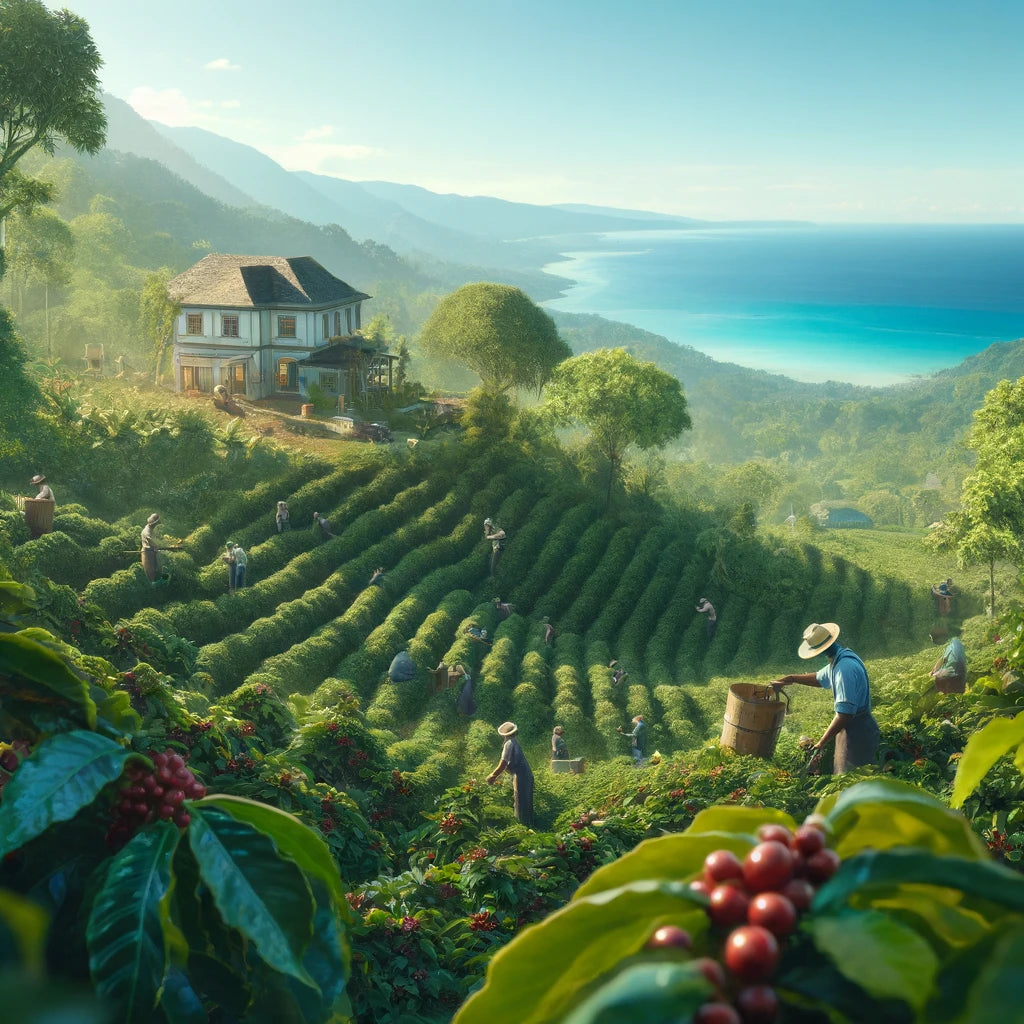
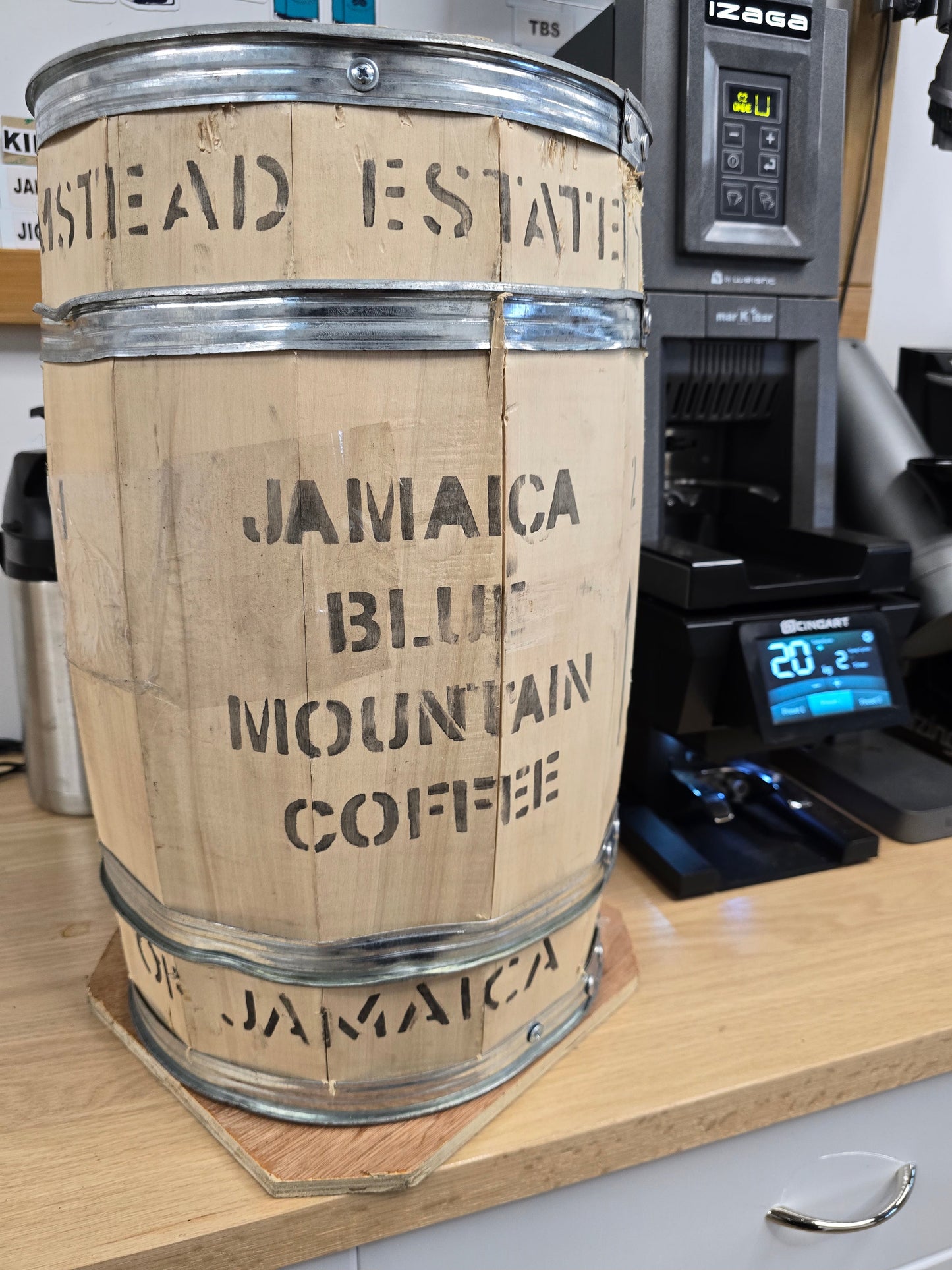

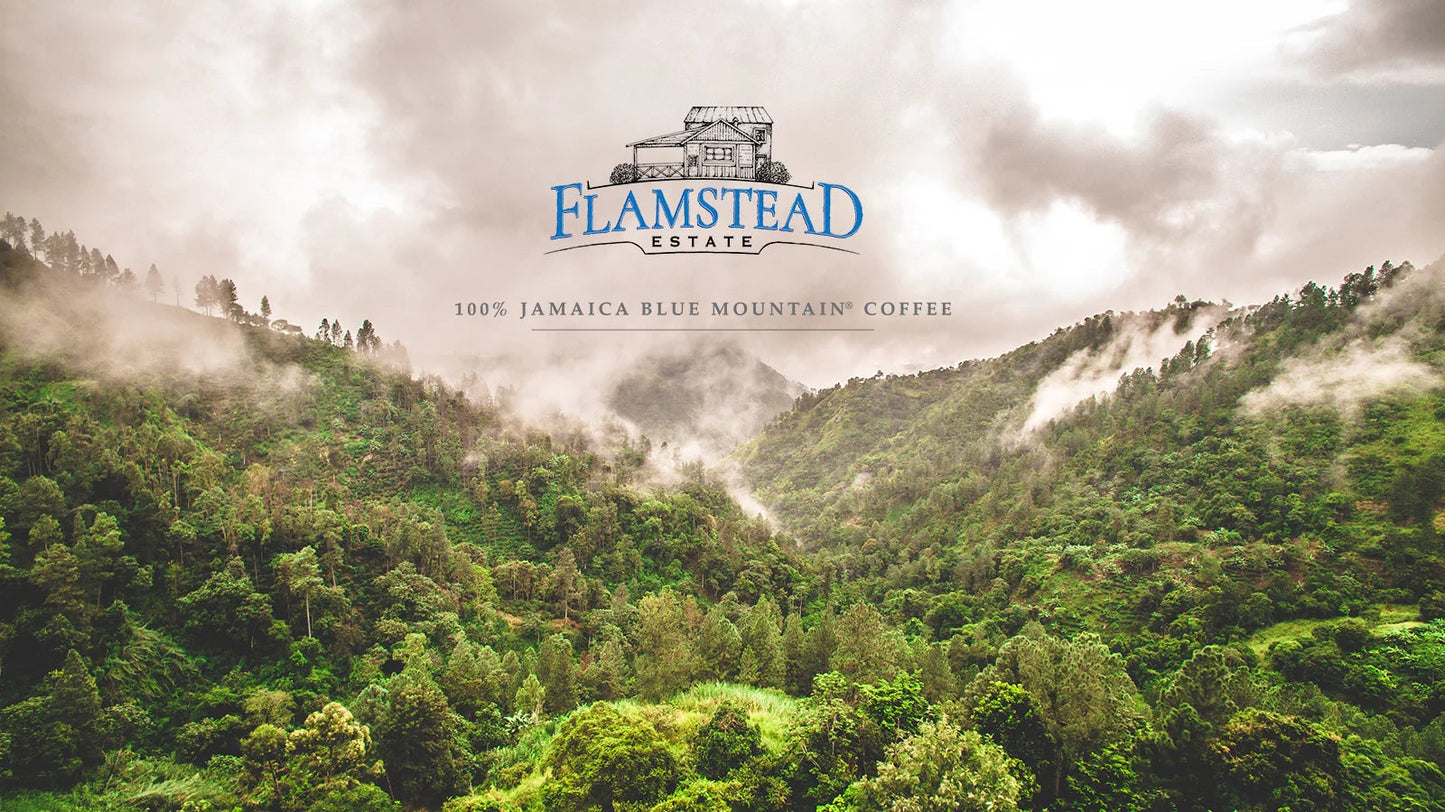
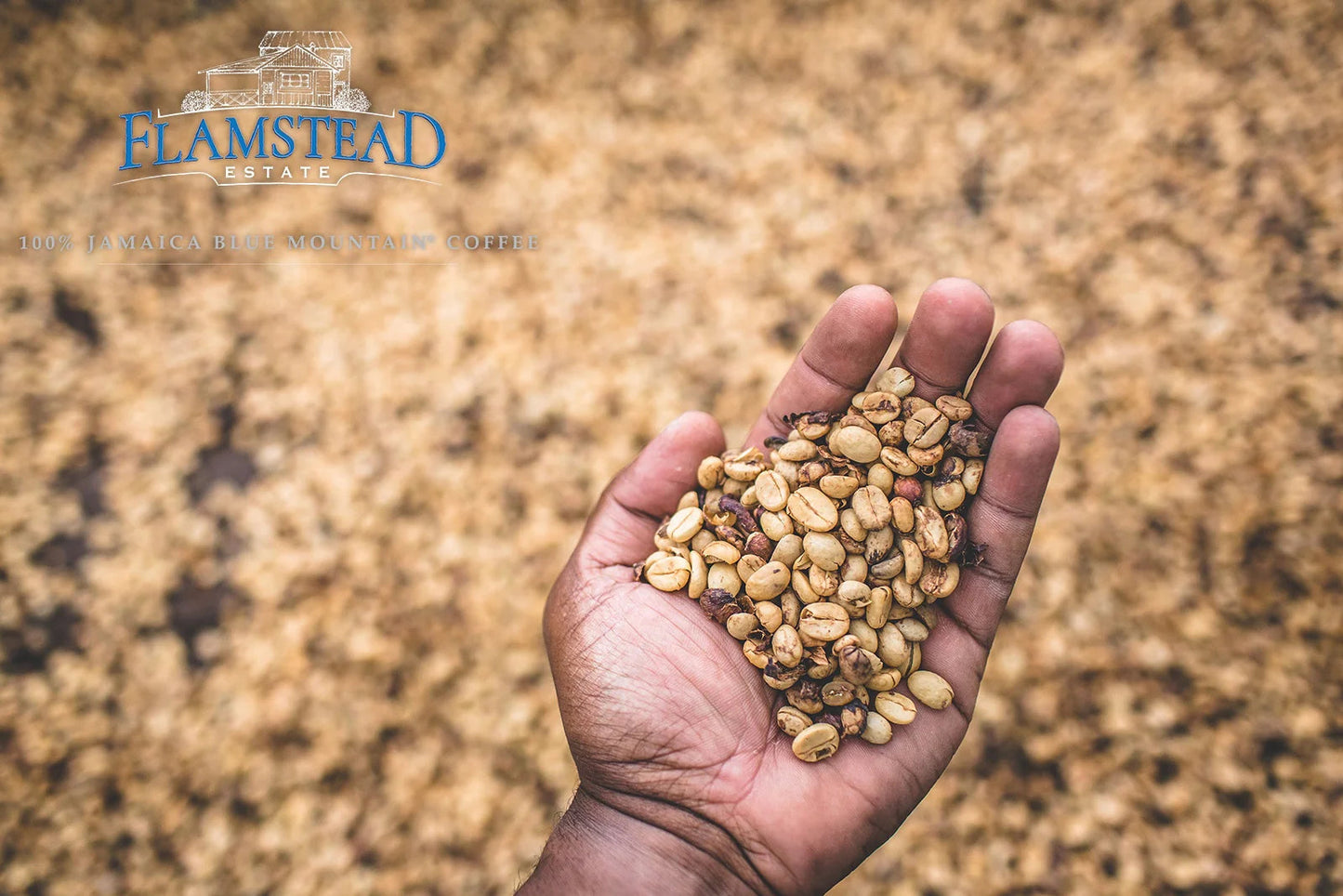
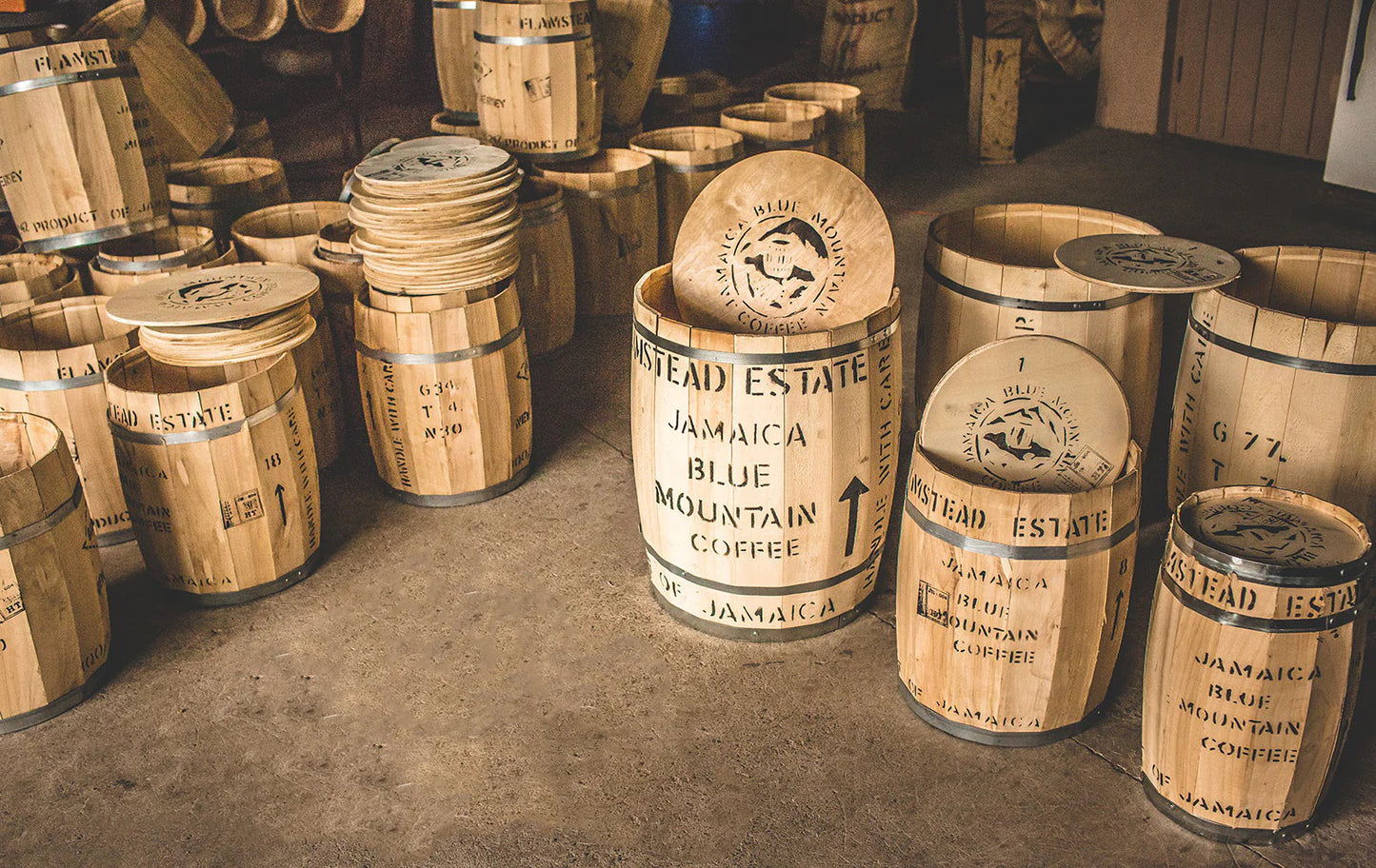
This coffee’s roasted in our filter style — meaning it’s designed to shine as black coffee rather than with milk. That doesn’t mean you have to brew it as a pour-over though. You can make it however you like — espresso, moka pot, AeroPress or anything in between. We simply roast it a little lighter to highlight the bean’s origin flavours giving you a cup that’s clean, vibrant and full of clarity.
Lighter roasting keeps more of the natural acidity and sweetness intact which makes for a beautifully expressive black coffee — and this one happens to play nicely with milk too. Expect a softer balanced cup where the sweetness carries through without turning sharp.
If you prefer your milk coffee with richer caramel, toffee or nutty flavours you might enjoy our espresso range more. Those roasts are taken a little darker to bring out deeper sweetness and balance beautifully with milk.
Origin and Sourcing
?
?
?
Roast Details
?
?
?
?
?
?
?
Taste Profile
?
?
Jamaica Blue Mountain | Flamstead Estate| Peaberry Grade 1 Washed - When is peak freshness?
Light Roast - Roasted on Roest L100 Ultra
Certifications: Grade 1 JACRA Certified Blue Mountain Coffee
Screen Size: 13 Up
About Flamstead Estate
Coffee production at Flamstead, located in St. Andrew, Jamaica, was first recorded in 1764 and quickly became a favorite within the British Empire. Over the years, various British governors owned portions of the estate, enjoying the premium quality of its coffee. In 1982, Ambassador Carlyle Dunkley, founder and Chairman of Blue Mountain Coffee Venture Limited (BMCV), acquired part of the Flamstead property and began coffee farming.
Today, his sons, Stephen and Graham, manage the company, continuing its legacy of excellence. Their hands-on approach ensures that Flamstead Estate stands out in every step of the coffee production process, from plant to cup.
In 2000, BMCV installed a modern coffee pulpery at Flamstead, allowing cherries to be pulped the same day they are picked. The facility uses minimal water during processing to conserve resources. After pulping, the beans are sun-dried on elevated wooden trays, where they are carefully monitored and frequently turned to avoid overexposure or damage. One expert with over 20 years of coffee drying experience praised the handling of the parchment coffee as “excellent, almost like handling a baby.”
At the estate's dry mill, state-of-the-art equipment and dedicated staff oversee the sorting of beans by size and density. Afterward, beans are hand-sorted to remove any defects. The coffee undergoes a thorough internal inspection before being packaged in wooden barrels and sent to the Jamaica Agricultural Commodities Regulatory Authority (JACRA) for final evaluation.
Flamstead Estate is also dedicated to environmental responsibility by:
- Practicing sustainable agriculture to conserve water and soil
- Harvesting rainfall
- Recycling water
- Reusing tires to build retaining walls
- Reusing paper and cardboard
- Composting coffee pulp
- Creating wetlands for native wildlife
- Planting native trees
- Additionally, BMCV has supported local community efforts, including aiding the recovery of Guava Ridge Basic School after Hurricane Beryl. When the school lost its roof and suffered other damage, Stephen and two local companies contributed materials and labor, allowing classrooms to reopen.
-
Jamaica is world famous for its Blue Mountain coffee, grown in a cool, misty, high altitude region that produces slow ripening cherries and a clean, refined cup profile. The combination of volcanic soil, steady rainfall, and careful hand selection has built a reputation for exceptional quality and very low bitterness. Production is small, labour is intensive, and much of the harvest is exported to Japan, which keeps Jamaican coffee rare and premium. Farmers in the Blue Mountains often rely on traditional processing methods, tight quality controls, and meticulous grading, which all contribute to the coffee’s smooth, sweet character.
Within this context, Jamaican peaberry is a highly sought after grade. Peaberries form when only one seed develops inside the cherry instead of two, creating a small round bean that is separated during milling. Many roasters value peaberries for their density and even shape which helps with uniform heat transfer in the roaster. Jamaican peaberry lots often show a slightly brighter and more concentrated expression of the classic Blue Mountain profile, with delicate sweetness, citrus hints, gentle florals, and a silky finish. They are limited in volume because peaberries only make up a small percentage of any harvest, which adds to their rarity and appeal.
SKU: jbm-flamstead-160g
Package Weight: 250g
How does my coffee come packaged?
- Choosing a selection results in a full page refresh.
- Opens in a new window.






